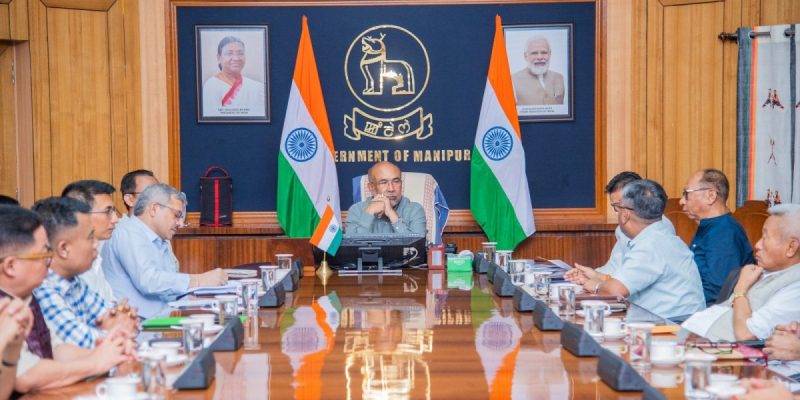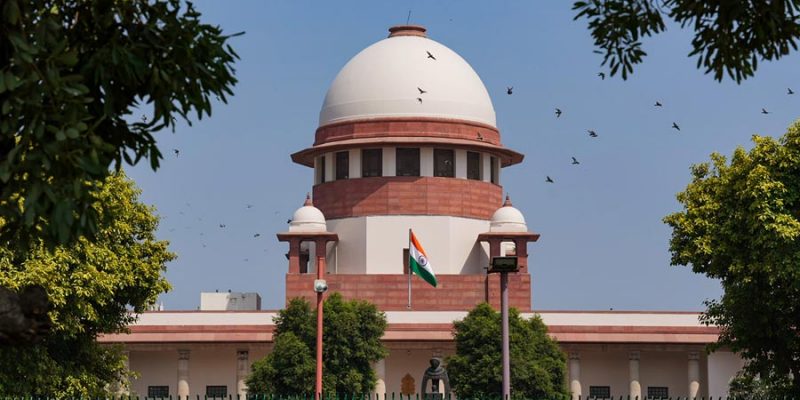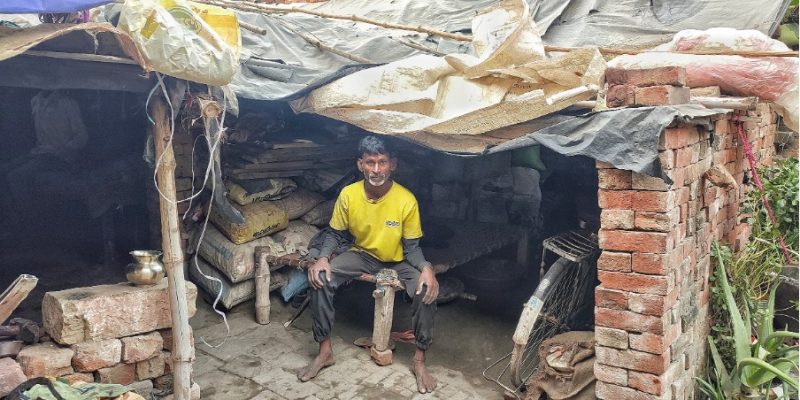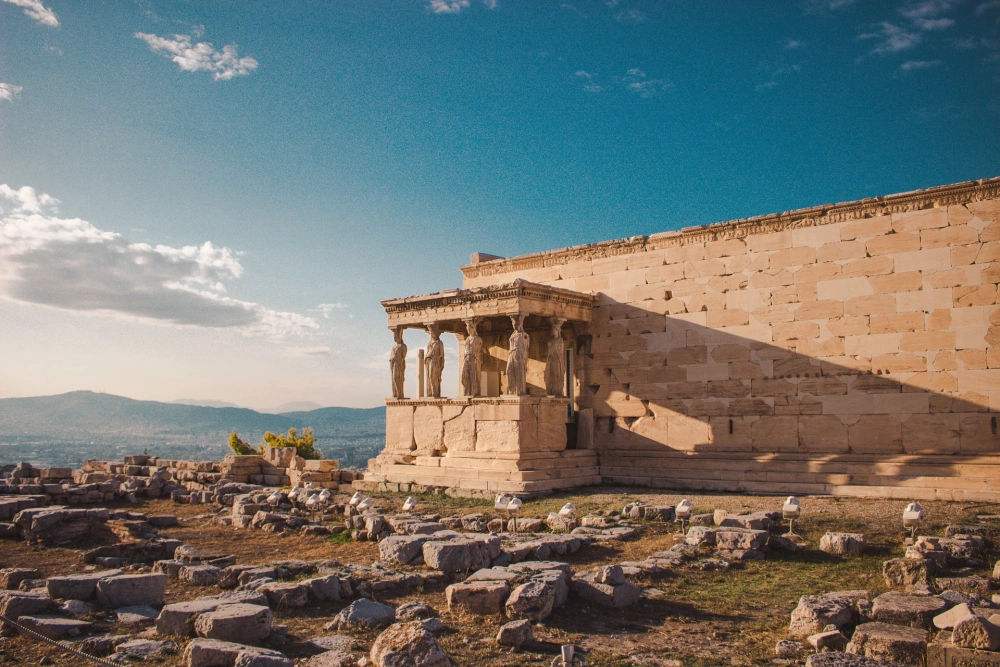Who Said What at Evaluation of India’s Human Rights Record: A Comprehensive Look
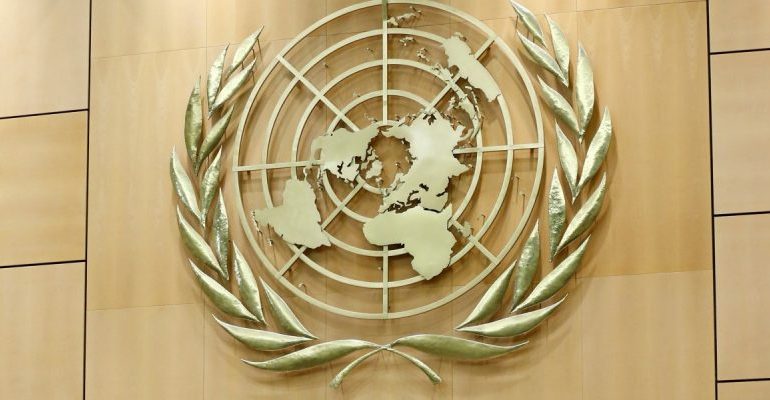
New Delhi: For more than three hours, India was at the receiving end of a slew of recommendations and expressions of concerns about its human rights situation, ranging from the tightening restrictions on civil society to the broad use of anti-terrorism legislation.
India’s human rights record was examined as part of the Universal Period Review (process), a peer-based evaluation mechanism under the UN Human Rights Council. This is the fourth time India has gone through this evaluation process, the last time being in 2017.
India’s solicitor general Tushar Mehta led India’s inter-ministerial delegation that opened the meeting by making a series of short presentations about government policies protecting the rights of various marginalised communities.
Around 130 countries participated in the meeting, stating their praise, concerns or recommendations within 55 seconds. Mehta made two specific interventions in the middle and end of the meeting, addressing some of the particular concerns.
All these recommendations will be compiled in a report, including India’s specific response to each proposal. The final report will be adopted next week.
Curbs on civil society
With concerns about the status of human rights activists to the foreign funding of NGOs, suggestions called for an urgent review of anti-terror laws to strengthen freedom of expression.
The United States representative lamented that “despite legal protections, discrimination and violence based on gender and religious affiliation persist”. She recommended the “broad applications” of the Unlawful Activities Prevention Act (UAPA) and similar laws against human rights activists, journalists, and religious minorities. “The application of anti-terror legislation has led to prolonged detentions of human rights defenders and activists, often in a pre-trial status,” said the US diplomat in Geneva.
Canada also agreed that India needed to ensure legislation, especially the UAPA, was compliant with international human rights laws to strengthen media freedom.
The US also called for “transparency of license adjudications related to the Foreign Contribution Regulation Act (FCRA) and create easier pathways for NGOs to appeal adverse government decisions on FCRA licenses”.
Similarly, Estonia said India should review the FCRA and UAPA to “ensure freedom of expression, assembly and association and the protection of civil society organisations and human rights defenders”.
Similar recommendations were made by other European countries, including Ireland, Germany, Switzerland and Belgium. Luxembourg urged for the release of “all detained human rights defenders”. The Italian side conveyed that India should “ensure a safe and enabling environment for civil society, as well as freedom of expression and media freedom and ensure accountability for violations”.
Finland had explicitly called for bolstering the implementation of the Whistleblowers Protection Act, 2014 and providing universal protection to all whistleblowers.
The Irish representative expressed concern “about the application of the FCRA, under which over 6,000 NGOs have had their operating licences revoked”.
Among Latin American countries, Mexico and Uruguay both proposed effective legal and legislative frameworks to protect human rights defenders.
India’s clarification: While stating that India appreciated the role of human rights defenders (HRDs), civil society groups and journalists, Mehta asserted, “At the same time, the activities of HRDs should be in conformity with the law of the land”.
He also noted that the Indian government has “always condemned” harassment, intimidation, smear campaigns, and violent attacks against human rights defenders, activists, journalists, and their family members. The enactment of the Right to Information Act and the Whistleblowers Act was cited as examples of empowering legislations. “In addition, they can also approach the judiciary for redressal of violations,” he said.
Vigorously defending the FCRA provisions, Mehta stated that actions “were taken against some organisations due to their illegal practices, including malafide rerouting of money and wilful and continuing violations of extant legal provisions, foreign exchange management rules and tax laws of India”.
“It is important to reiterate that civil society organisations are permitted to operate in India but must do so in accordance with law,” he added.
Regarding criticism of the misuse of anti-terror laws, India’s solicitor general said that laws like UAPA, the Armed Forces (Special Powers) Act (AFSPA) and the National Security Act “deal with the menace of terrorism and protect the sovereignty and integrity of India”. He claimed that there were “adequate safeguards inbuilt against any potential misuse”.

Solicitor General Tushar Mehta. Photo: Amity University
Freedom of expression and opinion
Again, several European and Latin American countries shared a forceful view that India needed to improve freedom of expression and the right to peaceful assembly.
Lithuania suggested reviewing national regulations to reinforce freedoms of expression, peaceful assembly and association. At the same time, the Czech Republic counselled repeal of crimes of sedition and criminal defamation in the Indian Penal Code “in order to be in line with international standards on freedom of expression”.
On protecting journalists, Greece proposed efforts to shore up the legal framework for the freedom of expression, “including strengthening a safe space for journalists and civil society organisations”.
According to the Software Freedom Law Centre, there have been 682 internet shutdowns in India, most of them in Jammu and Kashmir. Two countries noted implicitly that India had to improve its record on this front.
Switzerland recommended that India “renounce any measure aimed at slowing down or blocking the connection to the Internet”. Costa Rica also stated that India should “guarantee freedom of expression and the right to information, eliminating restrictions to access information online and on social networks”.
What India said: SG Mehta asserted that while the constitution guarantees the fundamental right to freedom of speech and expression, it was not absolute in nature and subject to reasonable restrictions.
He also claimed these restrictions were consonant with Article 19(3) of the International Covenant on Civil and Political Rights.
Explaining that Indian courts have said that such restrictions must not be excessive or disproportional, Mehta referred to the Supreme Court’s order to read down 66A of the Information Technology Act as “unconstitutionally vague”.
Incidentally, the struck-down provision had re-appeared in India’s written submission to the UN ad-hoc committee negotiating an international convention on cybercrime. Later, MEA stated that submission was based on “inter-ministerial inputs”.
Mehta noted that “imposing reasonable restrictions enables the state to regulate the freedom of expression when it comes to hate speech or when it comes to an offence”.
Last month, the Supreme Court directed three state governments to take suo moto action against any hate speech crime without waiting for a complaint, on a petition claiming inaction by authorities.
Also Read: India Performed Worse Than Average in Upholding 13 Basic Human Rights, Report Says
Anti-conversion laws and attacks on minorities
As in previous UPR cycles, the European Union members called for the repeal of anti-conversion laws enacted by various state governments.
Echoing similar views, the Dutch representative said that India should “take measures to prevent the abuse of so-called ‘anti-conversion’ laws, ensuring that such laws do not infringe upon the constitutionally-guaranteed freedom of religion and belief”. The UK called for India to “reinforce efforts to protect the rights of all minorities as enshrined in the Indian Constitution”.
The Vatican representative also said that India should ensure that state and local legislations are not in conflict with constitutional provisions “with regard to the freedom of religion or belief, including by repealing laws that are used to prevent, discourage, or prosecute conversion”.
The US also urged India to condemn and address hate speech against Muslims and other minorities. “We trust that India’s commitment to inclusivity and protection of human rights for all individuals, including members of minority communities, would only strengthen its status and credibility as the world’s largest secular democracy with diverse cultures,” said the US delegate.
Among developing countries, South Africa urged the Indian government to hold “accountable public officials who advocate religious hatred that constitutes incitement to discrimination, hostility, or violence”.
The Mexican delegate hoped that India would “review the design and implementation of the National Registry of Citizens (NRC) to avoid statelessness, deprivation or denial of nationality, arbitrary detentions or expulsions”.
The NRC has, so far, been enacted in Assam, but has yet to be implemented in the rest of India. Concerns over establishing a country-wide NRC, combined with the Citizenship Amendment Act, had triggered large protests in several parts of India in 2019, which eventually petered out with the onset of the COVID-19 pandemic.
The key Southeast Asian economy Malaysia stated that India should “take effective measures to prevent, prosecute and remedy discrimination and violence against Muslims and other religious minorities”. The Malaysian diplomat also noted that India should take “concrete steps to raise awareness on and eliminate extremist ideology that promotes and condones violence and discrimination against religious minorities in India”.
From the same neighbourhood, Brunei Darussalam noted “with concern” that there were reports of “attacks on minority communities and instances of religious intolerance, violence and discrimination”.
Similarly, Turkey called for India to take steps to prevent violence and hate speech against other religious minorities.
What India said: In his intervention, India’s second highest law officer said that legislations enacted by the state governments prohibit conversions from one religion to another “by the use of force, inducement, allurement or fraudulent means”.
“Referring to such legislation as anti-conversion law would be a misnomer,” Mehta asserted, adding that the Supreme Court had upheld the constitutional validity of Freedom of Religion Acts passed by state governments.
He also asserted that India “not only respects but celebrates diversity”.
“The provisions embodied in the Indian constitution related to freedom of religion have evolved over the years through robust legislation and spirited interpretation by the constitutional courts,” said Mehta.

Members of the Christian community and supporters hold placards during a protest rally against the Anti-Conversion Bill, in Bengaluru, December 22, 2021. Photo: PTI
AFSPA repeal
Belgium called for the withdrawal of AFSPA from the districts where it remains fully or partially in jurisdiction, while the Norwegian delegate suggested that the legislation should be revised to be in line with international treaties.
What India said: Responding to the criticism, Mehta said that AFSPA is “periodically reviewed” on the basis of requests of state governments and inputs of central agencies “based on ground situation”. He said that the Act had been fully withdrawn from the states of Tripura and Meghalaya over the past few years. This year, AFSPA was also removed from several districts in Assam, Nagaland and Tripura, added Mehta.
Ratification of UN treaty on Torture prevention
This has been a perennial topic in nearly all of the three previous UPR cycles that India has gone through.
As per a quick count, 29 countries called on India to ratify the UN Convention on Torture and Other Cruel, Inhuman or Degrading Treatment or Punishment (UNCAT) and its Optional Protocol, in their individual statements.
The list of nations referring to the UN treaty ranged from the western bloc to the island nations of Togo, Bahamas, Fiji and Japan, African countries like Ghana, Niger, Congo and Angola, and central Asia’s largest nation, Kazakhstan.
What India said: According to Mehta, India remains committed to ratifying UNCAT. He stated that the 273rd report of the Law Commission of India had given recommendations for ratification and proposal for changes to the domestic legislative framework. A draft Bill has been circulated to state governments. “Since the subject falls under concurrent list, state government’s opinions have to be taken,” he explained.
India is among just four countries that have signed the UN torture treaty but have yet to ratify it. The law commission report, which Mehta mentions, was submitted to the government in October 2017. It also included a draft Prevention of Torture Bill.
In a 2020 written answer in Lok Sabha, the minister of state for home affairs had said there “is no proposal to bring a legislation in this regard”.
The SG also reiterated that the existing framework guarantees adequate protection against any form of arbitrary detention and provides provisions for remedial measures against torture.
Death penalty
Seventeen countries, ranging from Australia to Iceland and Chile, urged India to put a formal moratorium on the use of the death penalty. Many of them, like Mexico, also asked India to consider signing the Second Optional Protocol to the International Covenant on Civil and Political Rights aimed at the abolition of the death penalty.
What India said: Indicating disagreement with the recommendation, solicitor general Mehta argued that the death penalty is “only imposed in rarest of rare case when the alternative option is unquestionably foreclosed when the crime committed is so heinous that it shocks the conscience of society”.
He also noted that the Indian Supreme Court had adopted guidelines on clemency and treatment of death row prisoners, which provided new clauses for commuting death sentences to life imprisonment. “There is also a provision to file a curative petition,” he said.

Representative image for the death penalty. Photo: Tamara Gore/Unsplash
Kashmir
Pakistan made four recommendations related to Kashmir – reverse the dilution of Article 370, comply with UNSC resolutions, allow the visit of the Office of the United Nations High Commissioner for Human Rights and release journalists, HRDs and others.
Turkey, a long-standing ally of Pakistan, did not mention any violations of human rights in Kashmir but urged for peace. “Finally, regretting that solid peace and cooperation has not taken root between India and Pakistan even 75 years after their independence; we wish for a fair and lasting peace in Kashmir,” said the Turkish official.
The only other country to refer to Kashmir at the UPR working group meeting was the Czech Republic. It pressed India to carry out an independent probe of attacks on journalists, especially in Jammu and Kashmir.
What India said: Solicitor general Mehta pushed back and reiterated that Jammu, Kashmir, and Ladakh “were and will always be an integral and inalienable part.”
He claimed that after the 2019 constitutional changes, people have been able to realise “their full potential”, the security situation has “improved significantly” despite “cross-border terrorism”, and there has been a “restoration of democracy at ground level”.
“This year, Jammu and Kashmir has already received 16 million tourists, the highest ever so far,” said Mehta.
As mentioned earlier, Pakistan had also raised Kashmir during India’s May 2017 third-cycle review. During Pakistan’s UPR process in 2017, India had also called for withdrawal from POK, dismantling of terror safe havens, transparency and reform of military courts, treatment of minorities, misuse of blasphemy laws and targeting of political dissidents in Sindh, KPK and Balochistan.
Rights of marginalised sections of society
Not surprisingly, the rights of women were raised by 44 countries, perhaps the most common concern among the speakers. North Korea, the day’s first speaker among member states, set the tone by calling for India to “continue its efforts to ensure safety and security of women, eliminate all forms of discrimination against women, and ensure their empowerment”.
Nambia, Benin and France called for India to accede to the Optional Protocol Convention on the Elimination of All Forms of Discrimination Against Women (CEDAW). India has acceded to CEDAW but has so far not signed the optional protocol which allows the Committee on the Elimination of Discrimination Against Women to hear complaints from individuals.
Several countries raised concerns that women’s share in the labour market should be higher. Based on government data, Indian women’s participation in the workforce, especially in rural areas, has fallen sharply in the last several decades.
Incidentally, Finland specifically welcomed the Supreme Court of India’s ruling that all women could obtain abortions up to 24 weeks into their pregnancies.
Besides, there were also recommendations about expanding free education for children, preventing sexual exploitation of children, transgender rights and ending discrimination against people with disabilities.
Three African countries – Sierra Leone, Ethiopia, Cameroon – and a Pacific nation, Marshall islands, referred to ending caste-based discrimination, especially in preventing violence and improving access to utilities.
What India said: The SG did not make any specific response on the issues of women, children and other communities in his two later interventions. The other delegation members from various ministries had referred to the targeted ongoing government policies in their presentations earlier.


